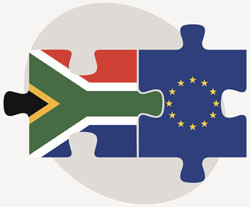EU-South Africa carbon cycle research
The project SOCCLI (The role of the Southern Ocean carbon cycle under climate change) aims to facilitate staff exchanges and networking in climate research. Top research groups from Europe and South Africa will jointly investigate the role of the Southern Ocean in controlling the concentration of CO2 in the atmosphere. SOCCLI will also support biogeochemical research by integrating South African observational data of Southern Ocean surface partial pressure of CO2 and air-sea CO2 fluxes into worldwide data sets. In addition, researchers will measure seasonal and annual changes in oceanic eddies to understand long-term trends in Southern Ocean CO2 fluxes and feedback associated with climate change. Researchers will also assess long-term sensitivity to the size and timing of the seasonal cycle of CO2 fluxes in the Southern Ocean and its impact on climate change. By combining field data with computer models, scientists will determine the relationship that controls biological production and coupled oxygen-carbon fluxes in the Southern Ocean. The Southern Ocean is now considered as the main emerging sink within the world ocean for CO2 produced from human activities. An improved simulation of this sink is vital for reliable predictions based on Earth system models. An accurate measurement of the Southern Ocean carbon sink is therefore important for accurate estimations of greenhouse gases, suitable for meeting given climate mitigation targets. Research supported by SOCCLI will also contribute to operational oceanography in South Africa. This will benefit marine environmental monitoring, resource management (including fisheries), extreme weather prediction, plus climate and seasonal forecasting activities. Moreover, SOCCLI will generate new knowledge that supports local fisheries, thereby providing jobs. Dissemination activities and outreach events with policymakers and large international research programmes are being conducted in both Europe and South Africa. These will provide stakeholders with essential information for making informed decisions on reductions in greenhouse gas emissions and mitigation of climate change.
Keywords
Carbon cycle, Southern Ocean, climate change, biogeochemical, CO2 fluxes

